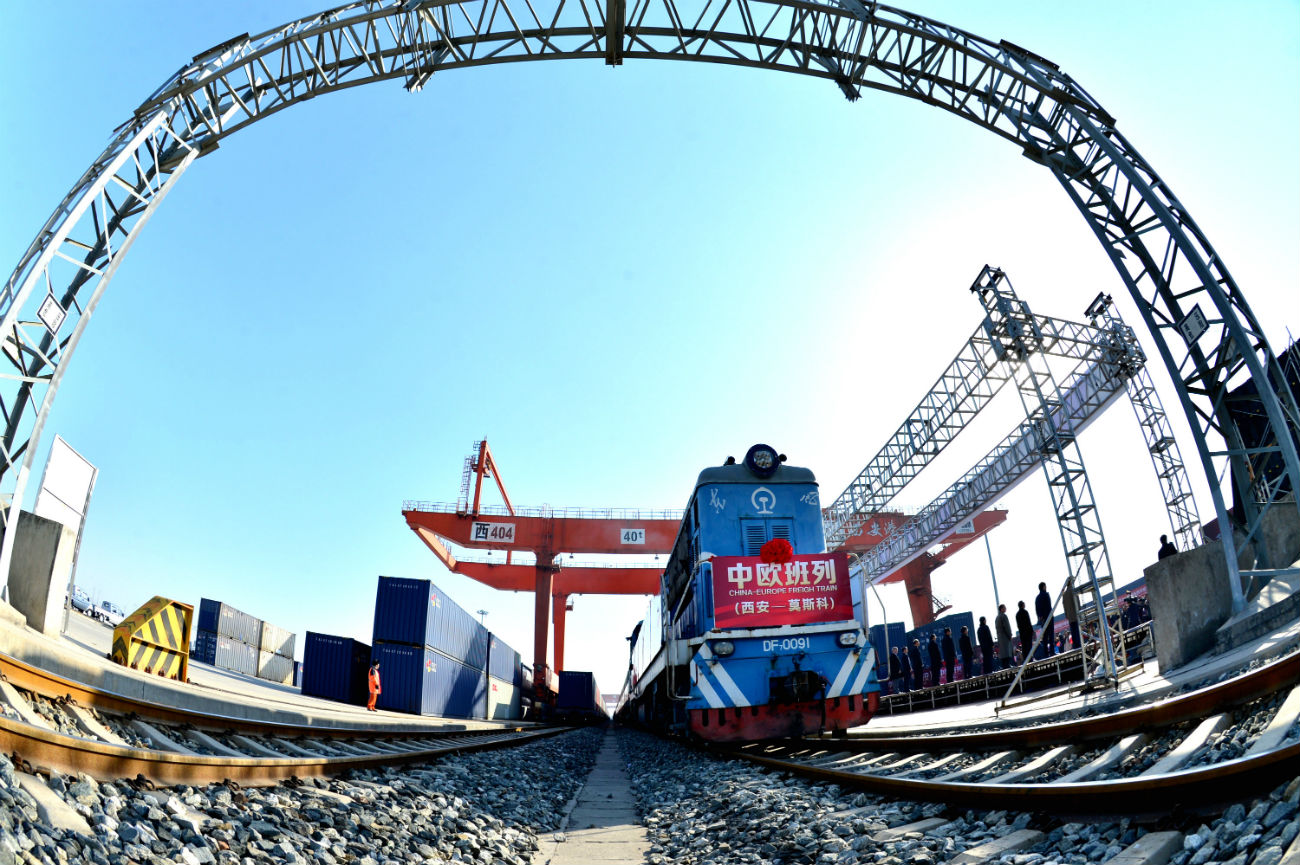
The first freight train service linking Xi'an, capital of northwest China's Shaanxi Province, with Moscowin December 2016.
ZUMA Press/Global Look PressIn the beginning of 2017, China launched yet another railway freight route to Europe. The new route connects the city of Yiwu in eastern Zhejiang province with London, making it the longest railway freight route in the world.
It takes 18 days to cover the journey of 12,000 km, and the train passes through Kazakhstan, the European part of Russia, Belarus, Poland, Germany, Belgium and France, before reaching the UK.
Yiwu Timex Industrial Investment Co., which is running the freight service, said in a press note that a train departs for London once a week, transporting household items, garments, bags, and suitcases.
According to logistics expert Alexei Bezborodov from InfraNews, the main purpose behind the opening of this route may be to get publicity, as household products and clothes do not need to be shipped on an urgent basis.
“Shipment time is important for expensive products such as auto kits, electronic equipment, and computers,” Bezborodov told RBTH.
“For example, the Hewlett-Packard train departs thrice a week from Chongqing to Germany. This launch of this service is an attempt to reach out to the suppliers and buyers of goods. They want to show that the Yiwu-London route exists.”
According to Finam analyst Alexey Kalachev, rail transportation offers just one advantage over the sea route - time. It takes 30 to 45 days to send goods to Europe from China by ship.
The sea route is cheaper and ships have a larger carrying capacity than trains. While a train can carry up to 200 containers, a ship can easily handle 20,000.
“It may cost up to $1700 to send a container on the Yiwu to London route, whereas it costs half the amount to send a container by ship,” Kalachev says.
According to Ivan Zuenko, an expert of the Center for Asia Pacific Studies at the Russian Academy of Sciences, China is interested in diversifying its transport options for foreign trade, so that “it can artificially stimulate the use of railways across the continent.”
Such a policy has already brought Russia a substantial income, as all freight trains from China cross Russia either through eastern Kazakhstan or via the Russian Far East and the Trans-Siberian Railway.
The demand for rail transportation through Russia is fuelled by the devaluation of the ruble, adds Bezborodov.
In 2016, the transit cargo flow via Russia amounted to 205,000 containers (an increase of 36 percent year-over-year) and earned the Russian Railways 6 billion rubles ($100 million).
If using any of Russia Beyond's content, partly or in full, always provide an active hyperlink to the original material.
Subscribe
to our newsletter!
Get the week's best stories straight to your inbox